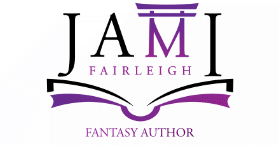
Book Review: Jonathan Strange and Mr Norrell by Susanna Clarke

![]()
Jonathan Strange and Mr Norrell by Susanna Clarke
Book Description
In the midst of the Napoleonic Wars in 1806, most people believe magic to have long since disappeared from England – until the reclusive Mr. Norrell reveals his powers and becomes an overnight celebrity. Another practicing magician then emerges: the young and daring Jonathan Strange. He becomes Norrell’s pupil, and the two join forces in the war against France. But Strange is increasingly drawn to the wild, most perilous forms of magic, and he soon risks sacrificing his partnership with Norrell and everything else he holds dear.
Review
This historical fantasy is an eye-popping monster of a novel. It sweeps readers into 19th-century England, right as magic reawakens. Set during the Napoleonic Wars, the story revolves around two magicians: the reclusive Mr Norrell, who possesses an unmatched knowledge of theoretical magic, and the charismatic Jonathan Strange, who stumbles upon his own magical abilities. The clash between their contrasting personalities and magical approaches propels the narrative forward.
Clarke’s attention to detail is astonishing. Every sentence feels meticulously crafted, evoking a sense of authenticity and depth. The world she presents feels so tangible and believable that it reads more like a history book than a fantasy novel.
But since the prose, plot, and world are so exquisitely crafted, why did it take me multiple tries to get into this book?
Narration style
In Jonathan Strange and Mr Norrell, Clarke uses a third-person omniscient narrator who has access to the thoughts, feelings, and perspectives of multiple characters, not limited to Norrell and Strange.
Now, I get that the omniscient narrator allows readers to explore a story from a panoramic viewpoint. I acknowledge how offering a deep understanding of characters, intricate world-building, and a sense of literary craftsmanship can enhance the reading experience.
However, the shift towards the more intimate, character-focused narratives we’ve enjoyed of late makes a novel like this much harder to read. When I read, I want a deep emotional connection to the character, and an immersive experience.
Although I didn’t like having the story “told” to me, the world Clarke has created is fascinating. So once I finally got into the book, I enjoyed the multi-dimensional (wonderfully flawed) characters and the rich, historical backdrop.
While the book delves into the world of magic, it is not a typical fantasy novel. Clarke weaves fantasy elements into the fabric of reality, creating a seamless blend of mundane and extraordinary. Throughout the novel, she explores themes of ambition, power, friendship, classism, racism, and sexism.
The magic in this world is mysterious, intricate, and imbued with consequences. Furthermore, I found Clarke’s focus on the moral implications of wielding magic intriguing. While it took me several tries to read this chonker of a novel, I’m very glad I did.
Content Warning
Kidnapping, Mental Illness, Murder, Racism, Violence, War
The header photo is a composite image. Base image by S. Tsuchiya on Unsplash

